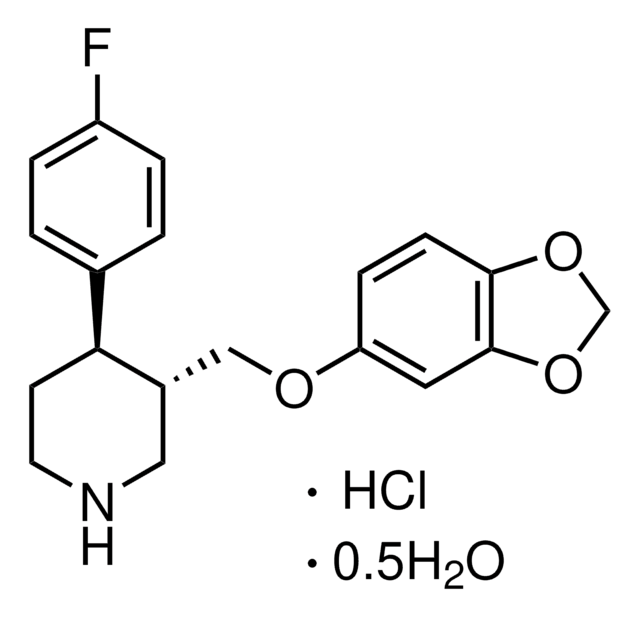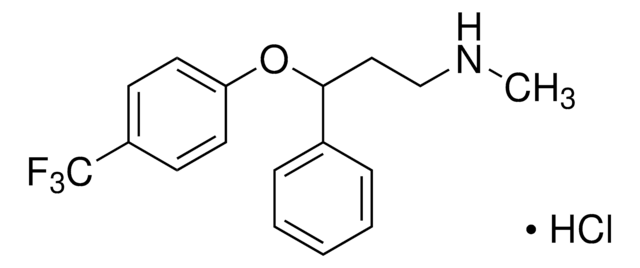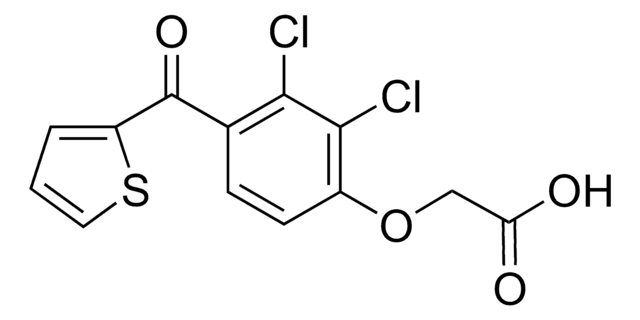Y0000281
Paroxetine hydrochloride hemihydrate
European Pharmacopoeia (EP) Reference Standard
Synonym(s):
(3S-trans)-3-[(1,3-Benzodioxol-5-yloxy)methyl]-4-(4-fluorophenyl)piperidine hydrochloride hemihydrate
About This Item
Recommended Products
grade
pharmaceutical primary standard
API family
paroxetine
manufacturer/tradename
EDQM
application(s)
pharmaceutical (small molecule)
format
neat
SMILES string
O.Cl[H].Fc1ccc(cc1)[C@@H]2CCNC[C@H]2COc3ccc4OCOc4c3
InChI
1S/C19H20FNO3.ClH.H2O/c20-15-3-1-13(2-4-15)17-7-8-21-10-14(17)11-22-16-5-6-18-19(9-16)24-12-23-18;;/h1-6,9,14,17,21H,7-8,10-12H2;1H;1H2/t14-,17-;;/m0../s1
InChI key
QRQSGFFISBKLMZ-YHOFXEKLSA-N
Gene Information
human ... SLC6A4(6532)
Looking for similar products? Visit Product Comparison Guide
General description
Application
Biochem/physiol Actions
Packaging
Other Notes
related product
Signal Word
Warning
Hazard Statements
Precautionary Statements
Hazard Classifications
Acute Tox. 4 Oral - Aquatic Acute 1 - Aquatic Chronic 1 - Eye Irrit. 2 - Skin Sens. 1 - STOT SE 3
Target Organs
Respiratory system
Storage Class Code
11 - Combustible Solids
WGK
WGK 3
Flash Point(F)
Not applicable
Flash Point(C)
Not applicable
Choose from one of the most recent versions:
Certificates of Analysis (COA)
It looks like we've run into a problem, but you can still download Certificates of Analysis from our Documents section.
If you need assistance, please contact Customer Support.
Already Own This Product?
Find documentation for the products that you have recently purchased in the Document Library.
Customers Also Viewed
Our team of scientists has experience in all areas of research including Life Science, Material Science, Chemical Synthesis, Chromatography, Analytical and many others.
Contact Technical Service






